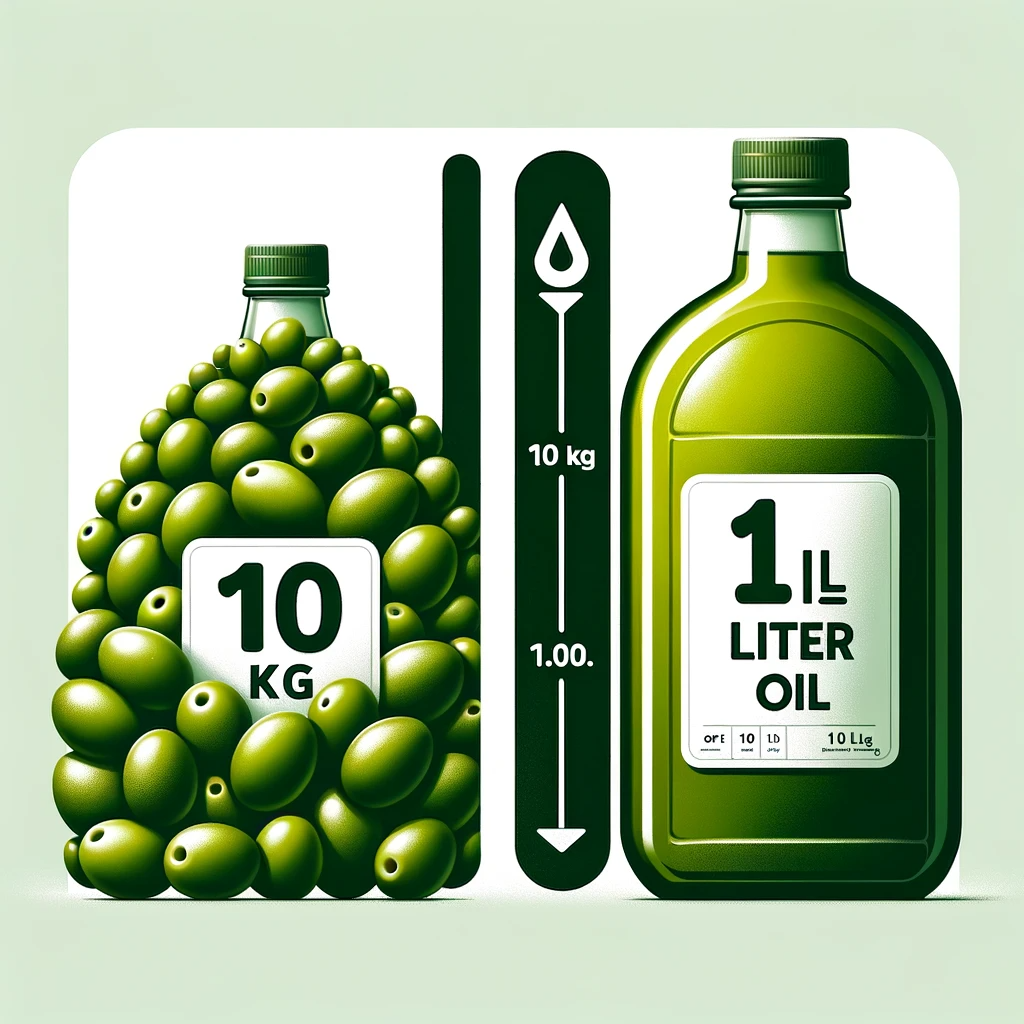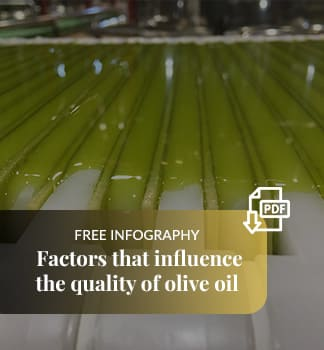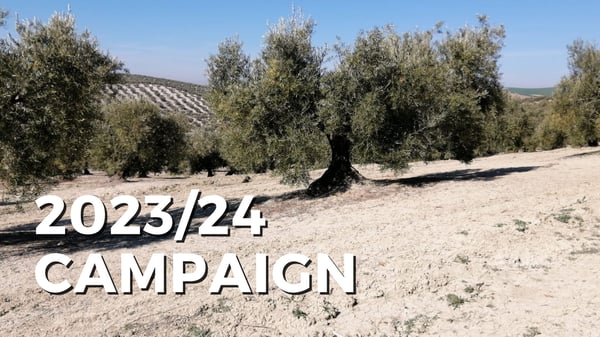Yields in Olive Oil
Yields in olive oil refer to the amount of oil that can be extracted from a given quantity of olives.
This yield varies according to several factors, including the type of olive, cultivation conditions, climate, timing of harvest, and the extraction process.
Below, we present some key points about the yields in olive oil:
- Olive Varieties: Different varieties of olives have different yields. For example, some varieties like the Picual may have a higher yield compared to others such as the Hojiblanca.
- Climate and Terroir: The climatic conditions and the terroir (the combination of factors such as soil, climate, and cultivation techniques) significantly influence the yield. Regions with optimal conditions for olive cultivation tend to produce higher yields.
- Olive Maturity: The timing of the harvest is crucial. Olives harvested at their optimal point of maturity usually provide the best oil yield.
- Cultivation Techniques and Irrigation: Farming practices, including irrigation and soil management, also affect the yield. Proper management can improve the quantity and quality of the oil produced.
- Extraction Processes: The technology and methods used to extract the oil from the olives are also fundamental. Modern and efficient methods can increase the yield without compromising the quality of the oil.
- Health of the Olive Grove: The overall health of the olive grove and the management of pests and diseases affect the number of healthy olives available for oil extraction.
- Annual Variations: Yields can vary from year to year due to changes in climate conditions, diseases, or variations in agricultural practices.
Economic Impact of Yields in Olive Oil
Yields in Olive Oil production have a significant economic impact for producers, the industry, and producing regions. Here are some key aspects of this impact:
- Production Costs: Low yields can increase production costs per unit of oil produced. If a greater quantity of olives is required to obtain the same amount of oil, costs in labor, transportation, and processing increase.
- Market Prices: Yields directly affect the supply of oil in the market. Low yields can lead to a decrease in supply and potentially to an increase in prices, benefiting producers who achieve higher yields.
- Profitability of Olive Farmers: For farmers, yields are a crucial factor in the profitability of their crops. High yields can offset low oil prices and vice versa.
- Investments in Technology: Yields can influence investment decisions in technology and agricultural practices. The pursuit of improvements in yield can lead to the adoption of advanced technologies and more efficient farming practices.
- Competitiveness in the International Market: In the global market, countries or regions with higher yields may have a competitive advantage, especially in years where other producers face low yields.
- Sustainability of the Sector: Consistently low yields can threaten the long-term sustainability of the Olive Oil sector, especially for small producers who may have less capacity to absorb additional costs.
Yields in Olive Oil are a determining factor in the economy of its production, affecting everything from the individual costs of producers to the global market prices and the sustainability of the sector as a whole.
Importance of Dry Matter Yield Analysis in Olive Oil
Analyzing Olive Oil yields based on dry matter rather than wet matter is crucial for several reasons:
- Accuracy in Yield Measurement: Dry matter represents the actual content of useful substances in the olives, excluding water. Measuring yield based on dry matter offers a more accurate assessment of oil content, as it eliminates variability caused by water content, which can fluctuate considerably.
- Consistent Comparisons: The water content in olives can vary due to factors such as climate, irrigation, and stage of maturity. By analyzing yields based on dry matter, more consistent and reliable comparisons can be made between different batches, varieties, and cultivation practices.
- Informed Agronomic Decisions: Understanding the actual oil yield relative to dry matter helps farmers make informed decisions about crop management, including the optimal timing of harvest and irrigation techniques.
- Oil Quality Assessment: The amount of oil extracted in relation to dry matter can be an indicator of the quality of the oil. A high yield based on dry matter often correlates with higher quality oil.
- Efficiency in Production and Processing: Analyzing yields on dry matter allows for more efficient planning and management in the production and processing of oil, optimizing resource use and maximizing efficiency.
- Economic Impact: Having a more accurate measure of oil yield allows producers and processors to make more accurate economic estimates, influencing pricing and profitability.
The analysis of yields based on dry matter in Olive Oil is fundamental for obtaining an accurate and useful measure of oil yield. This is key for agronomic decision-making, quality assessment, production efficiency, and economic impact.
| City | Variety | Yield (%) |
|---|---|---|
| Toledo | Cornicabra | 12 |
| Catalunya, Barcelona | Arbequina | 17 |
| Catalunya | Picual | 23 (specific cases) |
| Lleida | Arbequina | 14.5 (Irrigation) |
| Calzada de Calatrava | Arbequina | 15 |
| Calzada de Calatrava | Picual | 17 |
| Sureste de Albacete | Todas las partidas | 2-3 less points |
| Murcia | Todas las partidas | 4 less points |
| Puente Genil, Córdoba | No especificado | 3 less points |
| Córdoba | Frantoio | 20 |
| Córdoba | Picual | 18 |
| Córdoba | Arbequina | 16 |
| Córdoba | Hojiblanca | 15 |
| Córdoba | Manzanilla | 17 |
This table provides a more detailed view of the yields by city and variety, provided by the ESAO Alumni for the 2023/24 campaign dated 12/18/2023
Stay informed about olive oil trends to adapt to market changes and capitalize on opportunities.
We end as always with Bill Gates and his response when he was asked what he would invest his money in, to which he responded directly and bluntly: "invest in your education." That is to say, the founder of Microsoft considers that the best investment is to invest in one's own training.
Click here if you are interested in the ESAO Olive Oil Master Consultant
.png)






